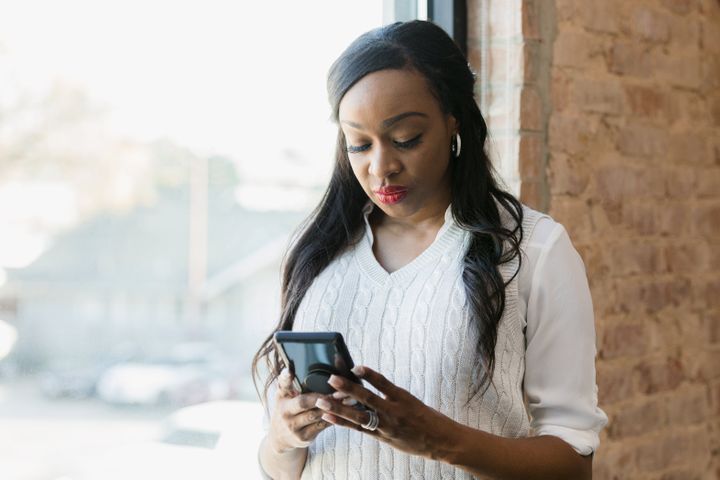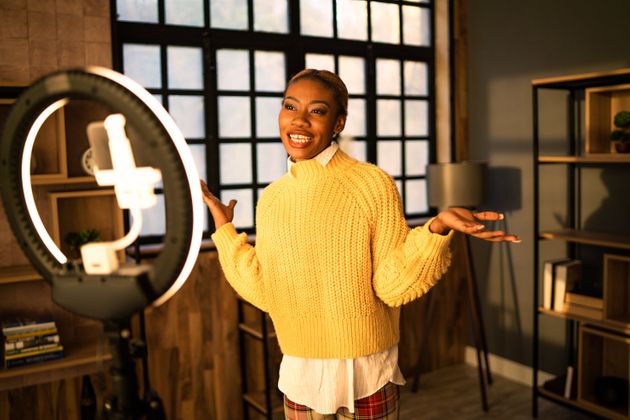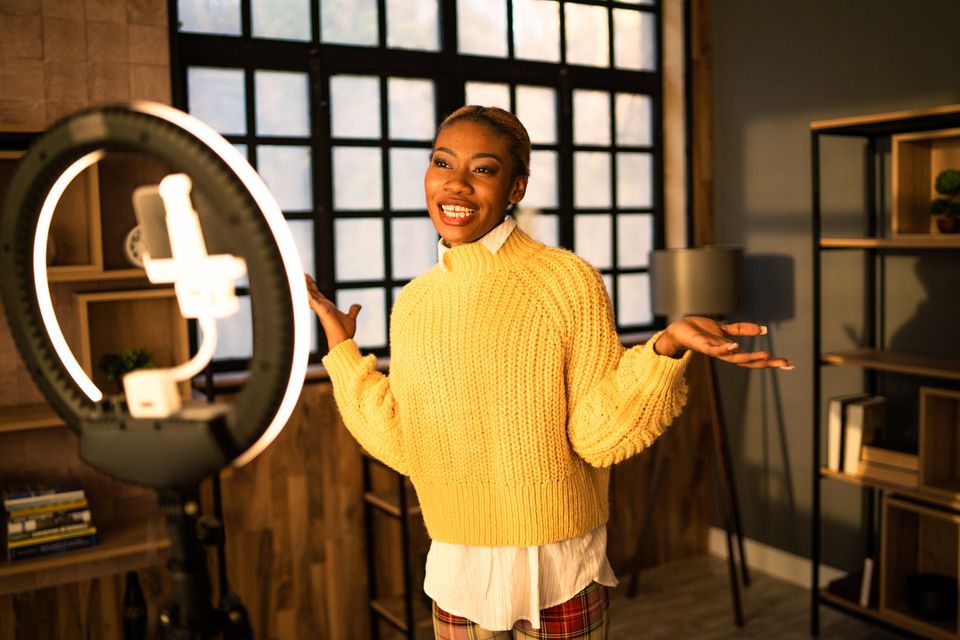Instagram and influencers – it’s difficult to imagine one without the other. I’ve happily followed fashion influencers on Instagram since I first downloaded the app in 2014. And there’s no doubt the limited representation of Black women in mainstream media made me feel connected to Black influencers specifically.
These were the people I ran to for makeup recommendations, to ogle their clothing choices and tap up their lifestyle content, from food to travel. I’ve kept up with everything my favourite influencers are wearing and buying for years.
Advertisement
That is, until the pandemic.
It was during lockdown when I started feeling less inclined to scroll influencer content. This was partly because my own life, like many others at the time, wasn’t where I wanted it to be. I was job-hunting, while freelancing through a pandemic. It was difficult and I wanted social media to be a form of escapism.
Advertisement
But the content I’d once found aspirational began to feel out of touch. Seeing people the same age as me buying things I couldn’t afford didn’t want to make me want to work harder – it made me feel like I was doing something wrong.
I knew the influencers weren’t really the problem, but I had to control how they were leaving me feeling. As someone who spends a lot of time on social media, it was up to me to decide which content I wanted to consume.
Advertisement
So I started to unfollow or mute some of their accounts.
Like me, Toju, a 21-year old student from Glasgow, also noticed a shift during the Covid lockdowns in how she felt about the influencers she followed.
These were the weeks and months when it was easy to think other people had more space, more time, were being more productive or having more fun than you, despite the challenges we were all facing. Remember when it seemed like every past Love Island contestant ever was in Dubai over Christmas 2021?
“During that time, a lot of influencers were travelling or just living very different lives to me,” she says. “I’ve also recently felt a shift again this year as more influencers have moved towards luxury or designer items in their content.”
Advertisement
More influencers that ever seem to be publishing elevated content, from showcasing their designer clothes and bags to eating out at expensive restaurants and generally living a life of luxury.
Of course, this content can be seen variously as aspirational or a form of escapism. It can also make you feel wholly inadequate in the here and now.
The cost of living crisis is playing out in real time. It’s hardly surprising Toju and many other social media users no longer feel inspired by influencer accounts.
“I can’t even be ‘influenced’ because these items are simply entirely out of my reach and budget, so I gain nothing but feelings of inadequacy from them,” she says.
“I’m seeing more things that would like to have but can’t afford on a daily basis, something I probably wouldn’t see if I wasn’t on social media.”
But the answer isn’t necessarily coming off social media entirely. It could just be changing who you do follow or which platforms you use and for what.
Data analyst, Hena J. Bryan, 25, a content creator herself, says that she’s put many of the influencers she used to follow on mute for over a year now.
“They just don’t align with a lot of the things I find important,” she says. “I think relatability, for me anyways, goes beyond finances, especially as I can afford the things they’re advertising. I want to discover more influencers who offer more than pretty pictures, and I’ve found a few who speak to my interests.”
Bryan creates content about the books she is reading and enjoys engaging with others doing the same. She adds: “I think people should curate their feed. You literally have to be militant and protect your digital footprint/experience.”

SDI Productions via Getty Images
It’s also worth being aware that how you engage with social media shifts over time. Akachi Priscilla Mbakwe, 32, a marketer from south London has lived online since her early teens. “I’ve been following influencers since I was on Tumblr,” she tells HuffPost UK. “People like Justine Skye who at the time were influencers, but the term wasn’t invented yet.”
Advertisement
When she was younger, Mbakwe says she followed people “for aspirational reasons”, and for their fashion and make-up content.
“I started to feel different in the pandemic especially during the resurgence of Black Lives Matter. I saw influencers uploading pictures of themselves whist the caption was about George Floyd – they just looked silly to me.”
There’s self-preservation at play here, too. “I started to unfollow influencers because I realised subconsciously that I was constantly comparing myself to them,” says Mbakwe. “Now I have such a better relationship with myself and how I look and I don’t want to compromise.
“I still look at them from time to time but not like I used to. Also, now I feel that most influencers make the same content. They’re all following the same formula. If you follow one it feels like you follow all of them.”
So, where does ultimate responsibility lie: with the followed or their followers?
Though the life of an influencer looks perfect, influencers themselves will tell you that sometimes it’s far from that. A lot of work goes on behind the scenes and many posters rely on rented or gifted products to project the image they do, some earning little more than the followers who aspire to their lifestyle.
“I don’t feel like influencers should change their content to suit us,” weighs in Mbakwe. “I think we (the consumers) should curate and have better boundaries with our feed if the content you’re viewing is making you feel bad.”
Bryan echoes this: “I believe we should all have social responsibility, but we shouldn’t have to force influencers to do/say things they don’t want to. You’re responsible for what you consume and I think TikTok has created a wave of new influencers who don’t lend themselves to perfectionism and are more relatable.”
With living costs only set to increase, it might be time for be more conscious about the content we choose to see. Arguably Influencers aren’t the ones to blame, just a byproduct of a capitalist society that rewards people for flaunting their wealth.
You have the power to choose who and what you engage with, so be honest about how your Instagram feed leaves you feeling – and make the changes you need.
Advertisement



